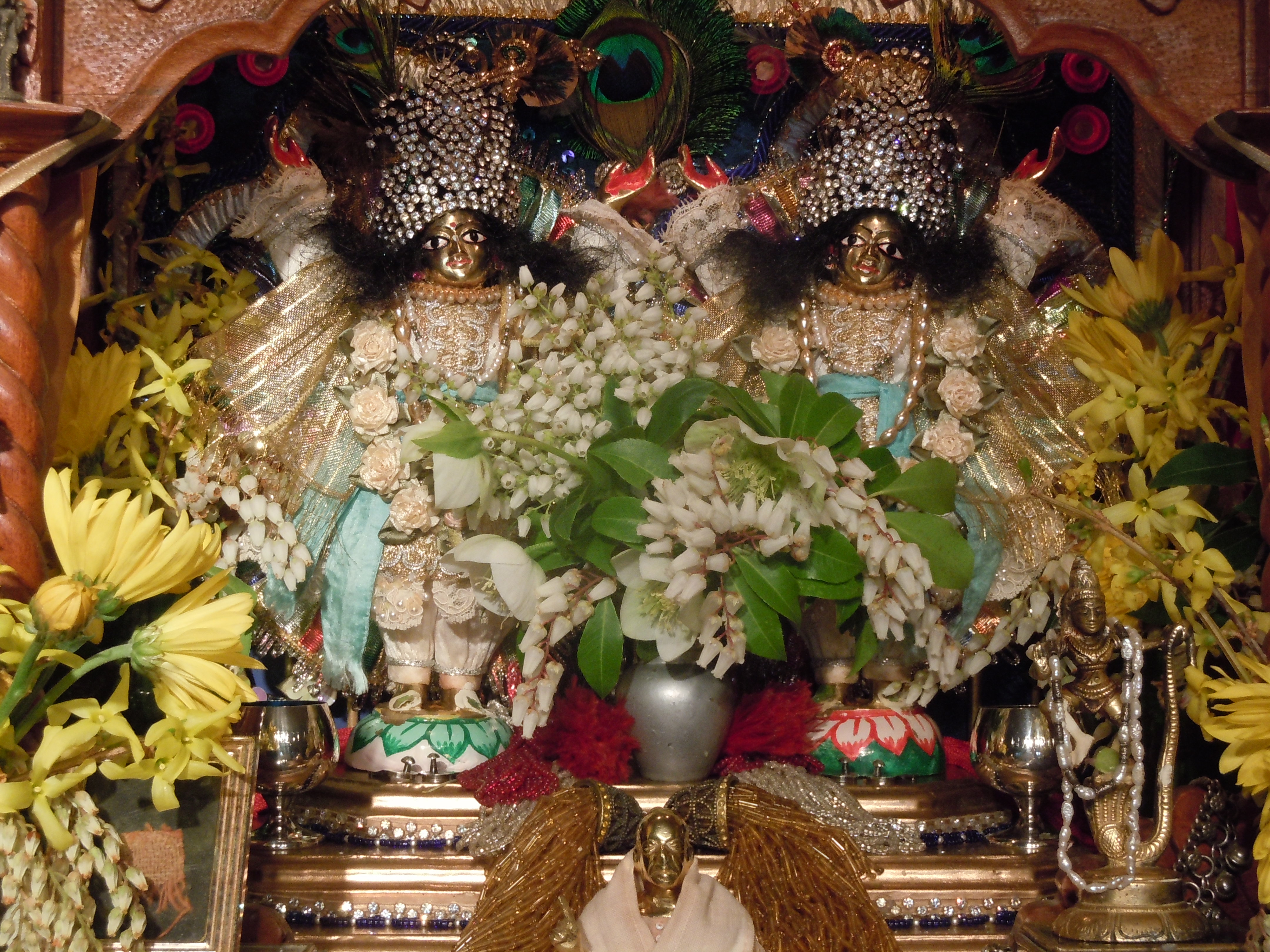SB 4.27.11 purport…There are two ways of animal-killing. One way is in the name of religious sacrifices. All the religions of the world—except the Buddhists—have a program for killing animals in places of worship. According to Vedic civilization, the animal-eaters are recommended to sacrifice a goat in the temple of Kālī under certain restrictive rules and regulations and eat the flesh. Similarly, they are recommended to drink wine by worshiping the goddess Caṇḍikā. The purpose is restriction. People have given up all this restriction. Now they are regularly opening wine distilleries and slaughterhouses and indulging in drinking alcohol and eating flesh. A Vaiṣṇava ācārya like Nārada Muni knows very well that persons engaged in such animal-killing in the name of religion are certainly becoming involved in the cycle of birth and death, forgetting the real aim of life: to go home, back to Godhead.
Thus the great sage Nārada, while instructing Śrīmad-Bhāgavatam to Vyāsa Muni, condemned the karma-kāṇḍa (fruitive) activities mentioned in the Vedas. Nārada told Vyāsa:
jugupsitaṁ dharma-kṛte ’nuśāsataḥ svabhāva-raktasya mahān vyatikramaḥ
yad vākyato dharma itītaraḥ sthito na manyate tasya nivāraṇaṁ janaḥ
“The people in general are naturally inclined to enjoy, and you have encouraged them in that way in the name of religion. This is verily condemned and is quite unreasonable. Because they are guided under your instructions, they will accept such activities in the name of religion and will hardly care for prohibitions.” (Bhāg. 1.5.15)
Śrīla Nārada Muni chastised Vyāsadeva for compiling so many Vedic supplementary scriptures, which are all intended for guiding the people in general. Nārada Muni condemned these scriptures because they do not mention direct devotional service. Under Nārada’s instructions, direct worship of the Supreme Personality of Godhead, as described in the Śrīmad-Bhāgavatam, was set forth by Vyāsadeva. The conclusion is that neither the Supreme Personality of Godhead, Viṣṇu, nor His devotee ever sanctions animal-killing in the name of religion. Indeed, Kṛṣṇa incarnated Himself as Lord Buddha to put an end to animal-killing in the name of religion.Animal sacrifice under the name of religion is conducted by the influence of tamo-guṇa (the mode of ignorance), as indicated in the Eighteenth Chapter of Bhagavad-gītā (18.31–32): yayā dharmam adharmaṁ ca kāryaṁ cākāryam eva ca ayathāvat prajānāti
buddhiḥ sā pārtha rājasī adharmaṁ dharmam iti yā manyate tamasāvṛtā
sarvārthān viparītāṁś ca buddhiḥ sā pārtha tāmasī
“That understanding which cannot distinguish between the religious way of life and the irreligious, between action that should be done and action that should not be done—that imperfect understanding, O son of Pṛthā, is in the mode of passion. That understanding which considers irreligion to be religion and religion to be irreligion, under the spell of illusion and darkness, and strives always in the wrong direction, O Pārtha, is in the mode of ignorance.”
Those who are involved in the mode of ignorance manufacture religious systems for killing animals.Actually dharma is transcendental. As Lord Śrī Kṛṣṇa teaches, we must give up all other systems of religion and simply surrender unto Him (sarva-dharmān parityajya [Bg. 18.66]). Thus the Lord and His devotees and representatives teach the transcendental dharma, which does not allow animal-killing at all. At the present moment it is the greatest misfortune that in India many so-called missionary workers are spreading irreligion in the name of religion. They claim an ordinary human being to be God and recommend meat-eating for everyone, including so-called sannyāsīs.


